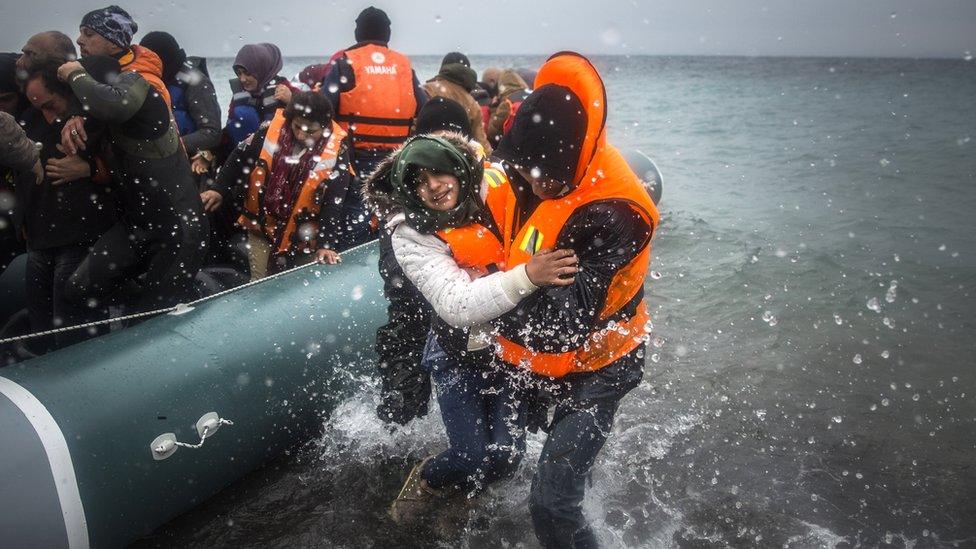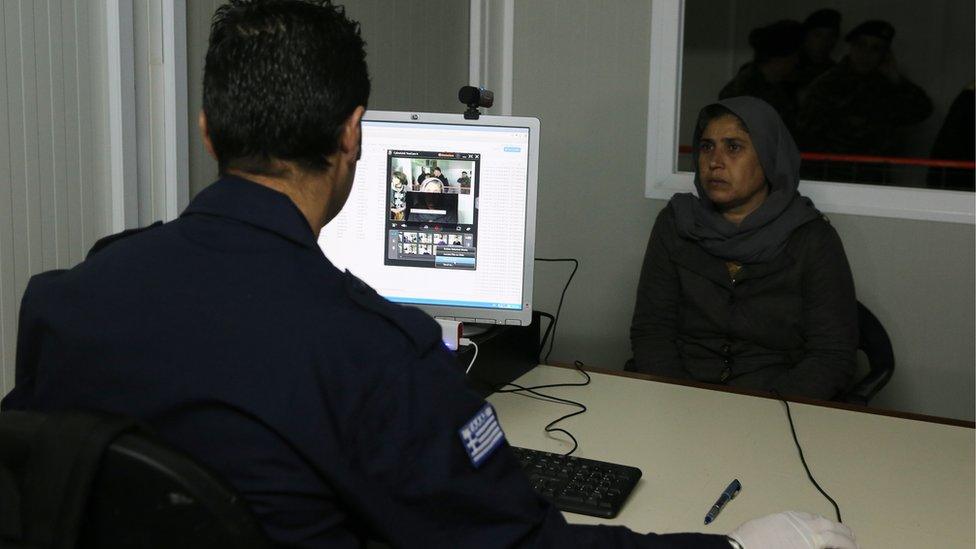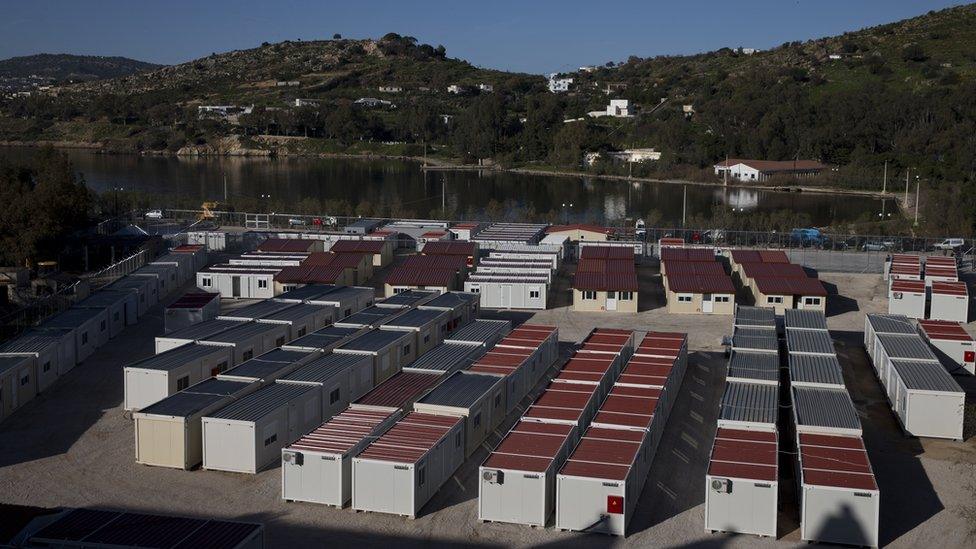Migrant crisis: Greece rejects 'EU lies' over border controls
- Published

Arrival at Lesbos: Rough winter weather has not dissuaded migrants
Greece's migration minister has accused fellow EU countries of hypocrisy and lying about Greece's handling of the huge migrant influx from Turkey.
"This discussion that we do not have control of our border - this is a lie," Yiannis Mouzalas said.
"We have the best control of a sea border that anyone can have," he added.
He was speaking to the BBC ahead of Thursday's EU summit, where Greece will report on its efforts to register migrants, many of them Syrian refugees.
Athens has been told to tighten border controls, to ensure that refugees are properly identified and that those not in need of protection are returned to Turkey or their home countries.
The EU hopes this will help reduce the flow of migrants to western Europe.
The minister also said it was a lie that Greece had not set up enough accommodation to cope with the influx.
The EU has demanded that Greece implement a raft of measures to improve border controls and facilities by May.
If not, some EU member states have discussed potentially suspending Greece from the Schengen area, where there are no passport controls - a region covering most of Europe.
Laurence Peter looks at what the end of the Schengen zone could mean
Mr Mouzalas insisted the main reason his government had been slow in registering and identifying migrants and spotting false documents was because the EU had been slow in providing the equipment and personnel it needed.
"Why is there now big progress in registration?" he said. "From 10% we are now at 90%, because now they have brought the machines that we were looking for, Eurodac (a fingerprint database)."
The minister reserved his harshest criticism for countries like Hungary and Slovenia which, along with several other EU member states, have sent teams of police officers to help the Macedonian security forces patrol their border with Greece, to prevent migrants crossing illegally into Macedonia.
Last week Austria told the Macedonian government to be ready to seal off the border to halt the flow of migrants.
"Is Greece the enemy of Europe, are the refugees the enemy?" he said.
"If someone believes something like that they have to declare it."
As for Hungary and its position on the refugee crisis, Mr Mouzalas questioned whether it was possible for Athens to have friendly relations with Budapest.
"They didn't give us a single blanket, for god's sake."
"We want a Europe of the Enlightenment, a Europe of romanticism, not a Europe of the Middle Ages."

Migrant registration on the Greek island of Chios: More are being processed now

A new "hotspot" is ready to receive migrants on Leros
A note on terminology: The BBC uses the term migrant to refer to all people on the move who have yet to complete the legal process of claiming asylum. This group includes people fleeing war-torn countries such as Syria, who are likely to be granted refugee status, as well as people who are seeking jobs and better lives, who governments are likely to rule are economic migrants.